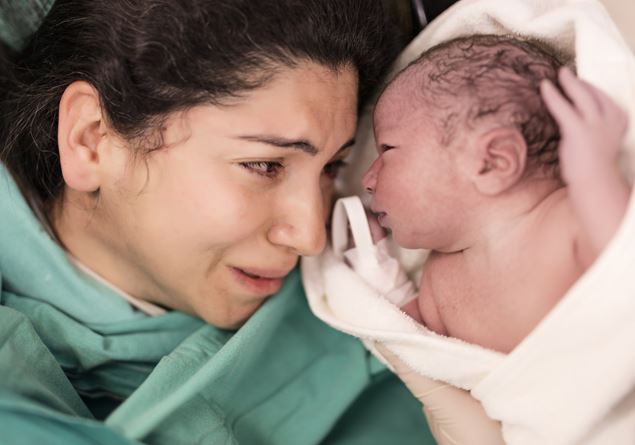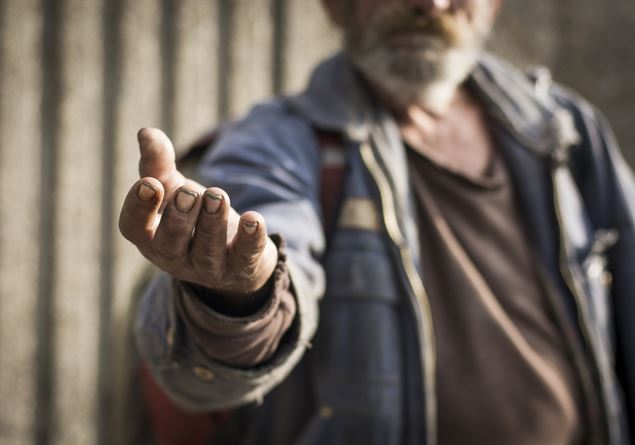
Marina Casini, president of the Movement for Life
Signs of hope. This narrates the Movement for Life in view of its 50th anniversary and the traditional national “Carlo Casini” conference, looking towards the Jubilee. And it does so in Mogliano Veneto for more than two days, with an opening evening of testimonies and voices from the world: the midwife and sister Sister Valentina Sala, from Jerusalem, and Sister Gloria Riva, art expert, from Mexico.
The president of the Movement for Life introduced the proceedings, Marina Casini. «There is a very strong link between conception until the end of life and hope. We cannot stay “on this side” if there is no hope. To find hope you need to have the courage to tell the truth: that life is sacred. For Saint John Paul II, the Cavs were already signs of hope then: it is life that will win over the culture of waste. Exactly like the children who have been born in these 50 years.” What then is hope? continues Casini. «It is not something superficial or episodic, it has a deep root which is trust. The largest? Knowing that you were created to love and be loved. True and profound source of our hope. Hence everything else: reconciliation, forgiveness. This is the certainty that must unite us.”
At the conference, also the greeting of Pope Bergoglio through the words of the Words of Cardinal Pietro Parolin, Secretary of State of His Holiness. «The Supreme Pontiff extends a cordial greeting to the organizers and all participants, renewing appreciation for the work carried out in defense of human life and, while he hopes that the event will consolidate awareness of the relationship between scientific research and respect for ethical values, ensures remembrance in prayer and willingly sends the apostolic blessing as a pledge of continuous divine assistance”.
And from Cardinal Matteo Zuppi: «Defending life means growing the culture of life. I appreciate your commitment to your attention to every man, from conception.” And again: «Your contribution is precious because it is in the Church and with the Church. Collaborate with initiatives and personal testimony, so that it is recognized the equal dignity of everyone and in all moments of life. You don’t love it just in one of its seasons! And everyone loves it. Therefore, also of the conceived and unborn child until his last breath.”
Sister Valentina Sala connected from Jerusalem
The story from Jerusalem by is intense and passionate Sister Valentina Sala, of the congregation of St. Joseph of the Apparition. Consecrated and midwife for years at the Saint Joseph hospital in East Jerusalem and today moved to West Jerusalem. Between the Middle Eastern situation, the presence and role of Christians, vocation and commitment to life. «The biggest suffering» he began in connection «is that the prospects have completely disappeared after October 7th. There is a lack of will to seek alternatives to mutual destruction. When the only position, however, it’s being in the middle. Stay and don’t take sides».
Interview by Francesco Ognibenejournalist for Avvenire, the nun testified to the role of Christians in Gaza. «The nice thing is that the parish of Gaza is distributing aid to everyone. The local Christians are first and foremost Palestinians. It wasn’t easy to put faith before identity, maintain this role of reconciliation. What should be recognized to the Christians here? That there is no choice of violence, even in attacks Christians are never the perpetrators.” The Middle Eastern crisis seen from the delivery room. How does life speak to everyone? Or do the divisions remain? «For years I have seen a certain violence and aggressiveness in childbirth assistance. I dreamed of removing violence from the delivery room: who knows, if you are born in peace, I said to myself, you might not grow up in peace”. By introducing water births «Jewish women also arrived and placed themselves in the hands of Palestinian personnel. What built relationships and mutual trust was taking care. A sort of compassion that has made many prejudices fall.”
Jewish mothers or Palestinian mothers, is there a difference? «Cultural and social, but they are all mothers, it does not change the maternal experience or the attention to the child. In the Arab context, family support is very strong. It was the first time I saw my mother and mother-in-law in the delivery room. The husband in the corner. Muslim women are free, instinctive. The Jewish ones are more Europeanmore cerebral: it is sometimes difficult to make them descend into their body by understanding that life does not pass through the brain.”
Religious vocation and vocation to life, the midwife. What came first? «The one I understood first was at the midwife. I was 16 when my sister was born, I am the first of 4 children and my mother, who has always been in Cav, taught us respect for life. When I went to visit her in hospital and he said the word “midwife” it stuck in my heart. A true vocation. The other, the religious one, was born from the meeting with the nuns of the Apparition. I had spent a few days with them in Como because I had to study to prepare for university exams; I was 25 years old and had been with a boyfriend for four years. There the Lord took over. The day before the thesis I was sitting on the floor and I felt like I was dying. I asked him what it was. Opening the Gospel there was the passage from Gethsemane: I found my same feelings in the Lord, who really understood me. It was the presence of God in that hole. I left my boyfriend, my job as a midwife at San Gerardo in Monza and for nine years I entered a convent.” Ten years later, in Jerusalem, At the end of a morning in Bethlehem hospital «I went into the cave of the nativity and prayed to Jesus in silence. “You were born, you know how to do it”; and Maria “you gave birth, you know how to do it”; and Giuseppe “you were there, you know how to do it”. If we have to open a maternity hospital that is according to God’s dream. At that moment a gentleman put his hand on my shoulder and blessed me. I never imagined I would see the effects of this motherhood and this communion.”
Sometimes in Italy the Cav service is misunderstood. How can one be persuaded of good reasons… «Continuing to do it. We don’t seek people’s consensus when we defend life, but we shouldn’t judge by feeling we’re on the right side. We do service because we believe in service. Incomprehension is the sign that something is being done well. It is not public opinion, but people’s lives that you touch and transform.”
Hope II by Gustav Klimt
From Mexico, the intervention of Sister Gloria Riva, superior of the nuns of the Perpetual Adoration of the Blessed Sacrament of San Marino and art historian. «In 1998 Saint John Paul II urged that every commitment and sacrifice be rewarded by the smiles of many children and that the right to life be recognized by all. I want to greet you through an image very dear to me by Gustav Klimt, an Austrian painter. Klimt loved slender women similar to showgirls, one day he was fascinated by a pregnant model. It was 1903. And he portrayed her totally naked. However, he waited to show it on the occasion of Prince Francis’ sixtieth birthday so as not to cause scandal. In 1907 a second work. A slender woman, but focused on her unborn child. I wore a dress that embodied spring, full of flowers. The hand is raised towards a skull of death. In this painting the representation of the drama of life threatened by death from conception. On the bottom of the dress, three women who seem overcome by the threat of abortion, a fate marked for those who, at the time, worked as models. He called both works Speranza (Hope I and Hope II). Why every path that is born is a hope in action and whoever defends it is a pilgrim of hope».
Also present at the opening night Manuela Lanzarin, health councilor of the Veneto Region. “The family is central and we must implement all possible actions to defend it.”
Cover photo, Istock






